VAV News April 1, 2016
The was the VAV News website for several years.
Content is from the site's 2016 archived pages offering just a small sample of what was available on this site.
###
Toby Lewis: Here's a behind the scenes story that never made it to post. When VAV and others reported on Donna Chung's drug related death at the Stereosonic Music Festival in Sydney, it triggered outrage, anger at Google, and a struggle to control the story by her wealthy family. The young woman took a number of prescription drugs as well as psychedelics at the concert and died after being rushed to the hospital. When Google searches for her name started showing the news items of the tragedy, her father sued the publishers. Since the news was true, the court threw out all the cases. Desperate to cleanse his family's reputation of this incident, he hired a number of reputation management firms to bury the links to the story in Google's search results. When the first firm's attempt to hide the search results was not successful after 3 months, he hired a second, more experienced vendor. These services remove the search results by optimizing other pages to outrank the problem, pushing it down its rank. This is an expensive and usually long term monthly commitment, but the father was determined to keep the story hidden. If you do the search today for his daughter, you won't find it anywhere. Not sure if this is the result of a successful removal effort or the search just changing.
TL - another one that never got posted: The US extracts a lot of oil from the waters just offshore in Louisiana. The big corporations are here and hundreds of crews plying these waters to work the rigs or the service boats. It's dangerous work. Think Deepwater Horizon. That was a biggie, but workers get injured daily on the job in New Orleans, Shreveport, Baton Rouge, Lafayette, etc., and are lucky if their employer steps in to assist with recovery. Actually according to Beth Meyer, they would be very lucky if they get anything. Most injured workers who are compensated get help by first contacting one of the many local Louisiana maritime lawyers. These are the heroes who get the settlements for injuries that can make all the difference for an injured worker, who will definitely need more than medical help to carry on with their life. The story is basically a sad one about a system that throws people away unless faced with a lawsuit. (This story was ultimately picked up and published by Uptick)
Halal certification: Parliamentary inquiry finds no link to terrorism, inflating food prices
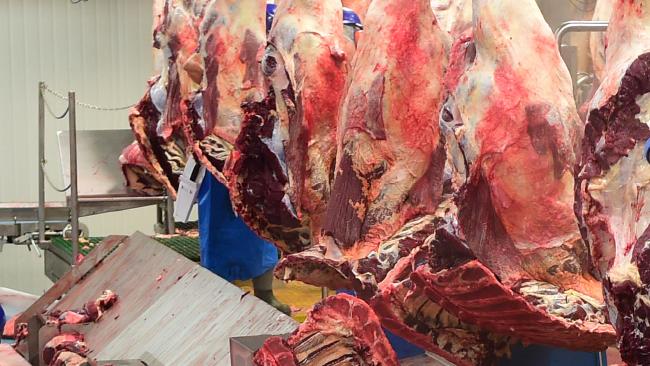
Lamb to the slaughter. Picture: Zoe Phillips
Emily Moulton
TAKE a wander down any supermarket isle and you will find a range of products featuring those official-looking paid-for ticks of approval.
And while these stamps let us know whether something is organic, genetically modified, Australian owned or grown, gluten-free or kosher, there is one certification that has created so much controversy it sparked a parliamentary inquiry: halal.
So what is it?
Well, it’s what it says on the packet. Something that has been officially recognised as halal allows Muslim consumers to buy the product.
Halal is an Arabic word that means permitted or lawful. And, in the context of food, it means it is fit for consumption for Muslims.
Halal foods don’t contain traces of alcohol, blood or pork (all forbidden in Islam), and halal applies to the way an animal is slaughtered. Animals are pre-stunned, but still alive when their throats are cut, so that the blood leaves their bodies.
WHY WAS THERE AN INQUIRY?
Despite halal certification being carried out in Australia for decades and generating about $8.5 billion in food exports a year, concerned citizens believe halal is a “religious tax” that hurts the hip pockets of everyday Australians and is a “conduit” for funding terrorism.
Groups such as Halal Choices argue people are entitled to know when they buy products if it has been halal certified in order to make “informed choices”.
They claim the certification is part of a wider agenda to “Islamify” Australia and force non-Muslims to pay fees that could find its way into terrorist organisations.
Their sentiments are shared by a number of politicians including Tasmanian independent senator Jacqui Lambie and South Australian Liberal senator Cory Bernardi.
Both have publicly stated they felt there were questions surrounding where the fees ended up.
Senator Bernardi was the driving force behind setting up the senate committee to investigate the food certification industry.
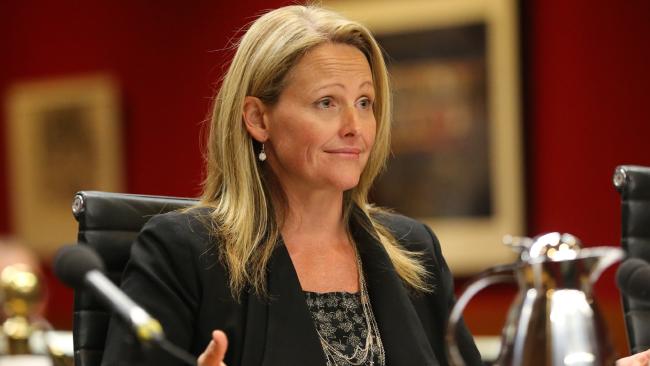
Kirralie Smith, of Halal Choices, has her say at the food certification inquiry. Picture: John GraingerSource:News Corp Australia
DOES HALAL FUND TERRORISM?
In its report, which was published in parliament this week, the committee found the practice of halal certification was misunderstood and the industry was under-regulated. This compromised the integrity of the system and allowed “the proliferation of questionable conduct by certifiers of questionable expertise and intent”, the report stated.
But the inquiry also found no links between halal certification and terrorist activity by extremists.
The committee, which received more than 1450 submissions, said while the inquiry was set up to investigate all food certification, the vast majority voiced concerns about, and opposition to, halal food certification.
“A number of submitters employed language and arguments which could be described as inflammatory, derogatory, and, in some cases, even obscene,” the committee said in the report. “In the interests of fostering an open dialogue and allowing submitters to have their opinions heard on what is clearly a contentious issue, the committee decided to accept and publish as many submissions as possible.
“Nonetheless, the committee is sensitive to the nature of some of the material in question, and some submissions were not published.”
Earlier this year, the ABC’s Four Corners program found some of Australia’s biggest halal certifiers, such as Australian Federation of Islamic Councils and the Islamic Co-ordinating Council of Victoria had contributed money towards the construction of a mosque and orphanage in Indonesia. However, the investigation found no evidence money was directed towards terrorist organisations.
Four Corners: The Truth About Halal1:27
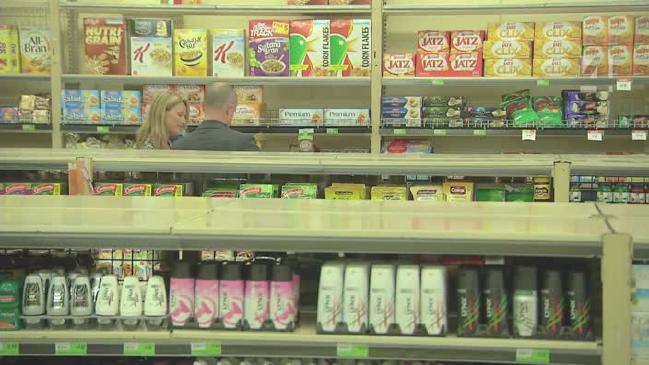
Four Corners: The truth about Halal ? the war of words over Islamic certification of food. Anti-Islam groups label it a religious tax. Claims of corruption and links to terrorism light up the blogosphere. We search out the truth.
WHERE DOES THE MONEY GO?
The committee said while Australians had a right to mistrust the industry in light of revelations products that were naturally halal, such as water and milk, were certified, there was no evidence the certifiers were “masquerading as a type of charity” to line their pockets or fund organisations that had strong links to criminal activity such as terrorism.
Both the Australian Transaction Reports and Analysis Centre (AUSTRAC) and the Australian Crime Commission said they could find no direct link between halal certification and terrorism.
Despite the evidence from both agencies, the report said a number of submitters remained unconvinced.
Senator Bernardi claimed the assessments from both agencies did not go far enough, arguing AUSTRAC admitted it did not have the power to track money overseas and that its 2014 report highlighted there was a “high risk” that charities and not-for-profit organisations could be used as channels for terrorism funding.
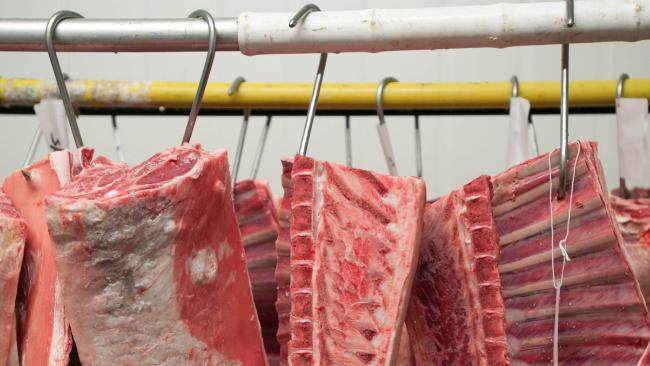
Anti-halal campaigners claim certification is driving up the price of food items such as lamb.Source:News Corp Australia
DOES HALAL DRIVE UP PRICES?
Anti-halal campaigners claim that, because certifiers are not legally required to disclose their fees, consumers have no way of knowing whether a price increase is a direct result of halal certification.
One submitter claimed that some fees were as “high as $27,000 per month ($324,000/year) and this obviously has to be passed on to the consumer, which is evident in the increased prices I am paying, which is not reflected in the price the primary producers are receiving for their goods”.
However the committee said while organic certification led to increased prices because of production costs and small quantities, the evidence it received regarding halal certification “overwhelmingly” suggested the practice didn’t increase prices.
It said because domestic and international food markets were competitive and price-conscious, it was very unlikely that Australian businesses would up their prices.
It also argued that if prices did increase because of halal certification, consumers would shop elsewhere.
DOES IT FORCE SHARIA LAW ON AUSTRALIANS?
According to the committee, many submitters said they were concerned religious certification imposed religion on consumers.
And while the committee examined all religious certifications, it noted that an overwhelming majority of submissions “were clearly primarily concerned with halal, not kosher, certification”.
In his submission, Australian Liberty Alliance senate candidate Bernard Gaynor claimed not only was halal certification viewed as a form of “religious tax” that spread Islam, it was viewed “as a way of imposing sharia law and Islamic religious beliefs on the majority of non-Muslim Australians every time they sit down to eat”.
Mr Gaynor claimed it also embedded “an Islamic religious ritual in the food-production process of meat products”.
But these claims were rejected by the committee.
The committee found that many of the submissions confused the term “halal” with the process of halal certification, saying certification was “purely a commercial exchange”.
“Certification does not require a religious ritual, nor does it in itself make food any more or any less halal. Products are either halal or they are not — certification merely verifies the fact,” the report stated.
“It cannot be asserted that the act of certification imposes religion on consumers. In the committee’s view more could be done to explain what halal certification entails — this would assist in clarifying prevailing misconceptions.”
Both the Australian Federation of Islamic Councils and the Executive Council of Australian Jewry in their submissions said no religious “ritual” or prayers are carried out on animals prior to slaughter.
Halal Certification in Australia: FAQ1:51
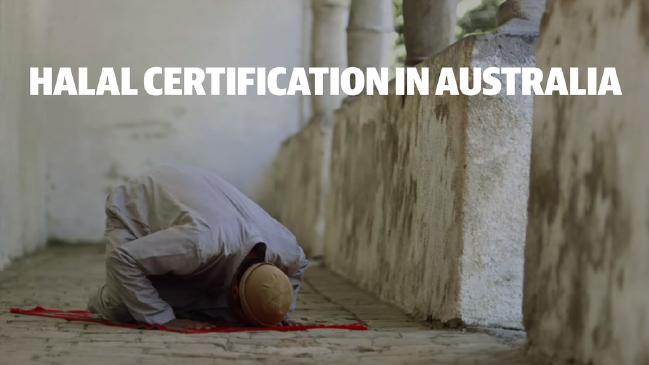
As a response to our readers many requests for the hard facts on halal certification, we contacted several major food companies, government agencies and industry leaders to answer your top questions. Presented by Bianca Britton.
Stereosonic Adelaide 2015 drug arrest: Police seize methamphetamine
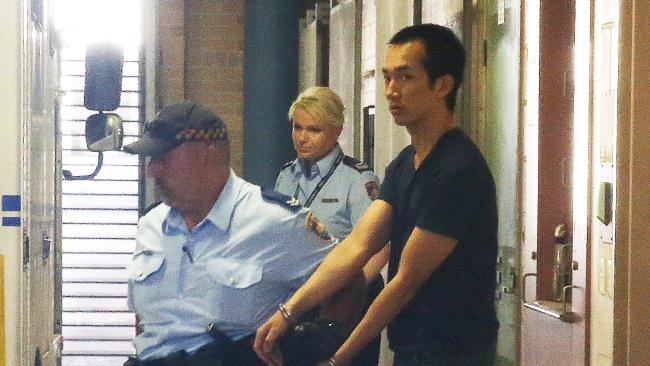
Police have charged Daniel Dung Huynh, from Punchbowl in Sydney, with two counts of supplying a prohibited drug. Sylvia Choi died after taking MDMA at last weekend’s Sydney leg of the Stereosonic music festival.
Benedict Brook with AAP news.com.au
POLICE have arrested a 25-year-old South Australian man after they seized half a kilogram of methamphetamine, or ice, allegedly bound for Adelaide’s Stereosonic music festival which is being held today.
The event in Adelaide’s Bonython Park is one of three Stereosonics being held this weekend.
The arrest comes just a day after police in NSW arrested a man from south western Sydney in relation to the death of a reveller at last weekend’s Stereosonic dance party in NSW.
Slyvia Choi, a pharmacist from Oyster Bay in Sydney’s south, died after reportedly drinking MDMA dissolved in a bottle of water at the music festival.
In Sydney on Friday, Daniel Dung Huynh attended court charged with two counts of supplying a prohibited drug.
Huynh, from Punchbowl, applied for bail, but Magistrate Gary Still, sitting at Burwood Local Court, said he posed too great a risk to the community to be released and refused the application.
Prosecutors allege Huynh was the source of the drug that killed Ms Choi and handed the MDMA over to her boyfriend Samuel Song at a steakhouse the night before the festival. Police believe Mr Song created a WhatsApp group named “Bulk4stereosonickkk” in October that included Ms Choi, Huynh and others.
Members of the group allegedly sent one another messages discussing “lolly numbers” and drug requests for the festival. Huynh is alleged to have told conversation participants: “Its suggested all over the net to take half. Then the other one and hr later. Btw if ever caught and brought into questioning by cops and you don’t have anything on you. Deny deny deny (sic).”
Ms Choi is said to have replied: “Hmm I have a bad track record with halves lol.”
The police fact sheet details how Ms Choi indicated she had consumed an MDMA tablet or capsule shortly after 5pm but later complained she was “not feeling my high”.
Later that evening, police say, Mr Song saw Ms Choi drinking from a water bottle which she said had “stuff” in it.
About 8.40pm he noticed his girlfriend was unsteady on her feet and stumbling. Although she was rushed to hospital, doctors were unable to revive her.
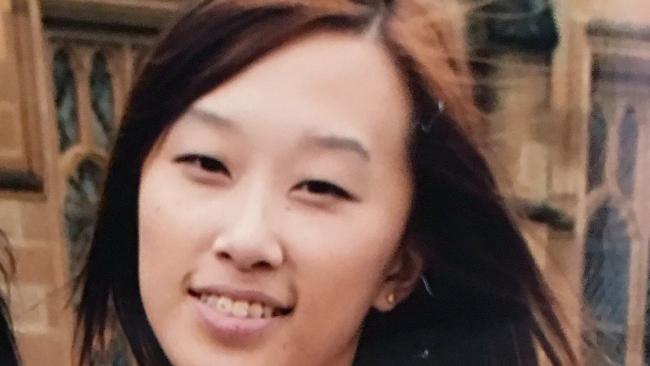
Sylvia Choi died at last weekend’s Stereosonic Music Festival at Sydney’s Olympic Park. Source: supplied.Source:AAP
More than 48,000 revellers flocked to the event at Sydney Olympic Park last Saturday, where Ms Choi collapsed and later died in hospital. It was the fifth death linked to drugs at an Australian music festival in a little over a year.
VACUUM CLEANER
On Friday, South Australian police officers searched a home in Adelaide’s north. While there, they found drugs hidden in a vacuum cleaner.
A 25-year-old Prospect man was arrested and charged with trafficking in a commercial quantity of a controlled drug.
He was refused bail and faced Adelaide Magistrates Court yesterday.
This weekend, more than 100,000 people are expected to pack into stadiums in Melbourne, Brisbane and Adelaide for the Stereosonic festival’s biggest weekend of the year to hear artists such as Armin Van Burren and Peking Duk.

Last weekend’s Stereosonic music festival in Sydney. Three Stereosonics are being staged this weekend around the country. Source: FacebookSource:Facebook
But an emergency doctor has warned this weekend’s multitude of music festivals coupled with searing temperatures could be a “lethal cocktail”.
Temperatures are expected to reach 40 degrees in the South Australian capital today.
Royal Adelaide Hospital emergency physician and clinical toxicologist Sam Alfred told news.com.au there was an increase in admissions to the hospital’s emergency department every time a festival occurred, with drugs and alcohol the main culprits.
“The sorts of things we see are people who are unconscious because they have taken too much or we see people who’ve got too much serotonin in their system, which can drive your core body temperature up,” Dr Alfred said.
LETHAL COCKTAIL
“That’s what can cause a lot of harm to people and often what kills is a hypothermia responsive breakdown of organic systems.”
He advised drinking water regularly but not to excess, seeking shade, taking breaks and cooling down.
“The mechanism by which drugs cause damage is heat related. You couple that with a day that is almost 40 degrees and it’s a lethal cocktail.”
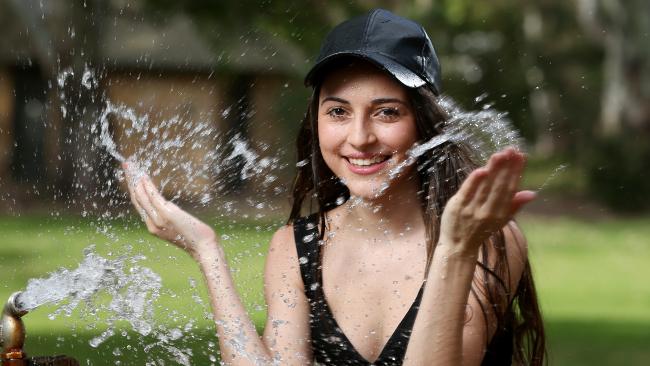
Ivana Barolo, from Rostrevor in eastern Adelaide, shows how she intends to keep cool when she attends the Stereosonic festival in South Australia’s capital today. Temperatures are expected to reach 40C. photo Calum RobertsonSource:News Corp Australia
Totem OneLove, the organisers of Stereosonic, urged festival goers to look after one another particularly in the scorching Adelaide heat.
“Our first-aid and general event staff are there to help you and not judge, if you or one of your friends are in trouble there will be no consequences for presenting to first aid,” a statement read.
Free water and sunscreen would be provided at all the festivals, as well as additional shaded areas, mist machines and covered stages.
“We encourage our patrons not to play Russian roulette with your lives. We have always had, and continue to have, a zero-tolerance policy towards drugs and if people are caught bringing them in they will be denied entry and removed from the site.”
SAS - The Search for Warriors0:56
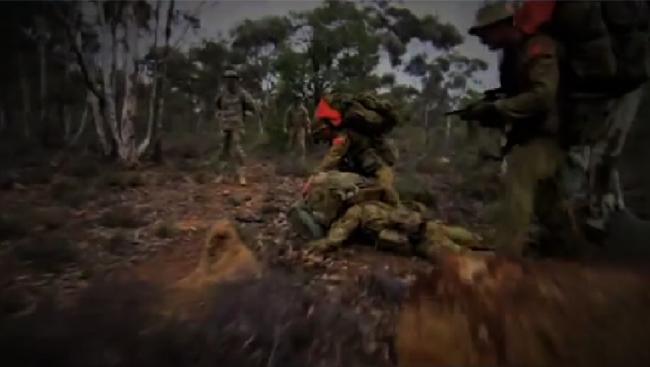
For the first time in 25 years the Australian SAS lift their veil of secrecy to reveal what it takes to pass the toughest military selection course in the world. Courtesy: SBS
DBV Techology Co., Ltd Address : No.35 HangVo Street, Hano
Email: [email protected]
Phone Governance : 0904.727.142 + ex 1
PA-CMS version 3.15 .
More Background On VAVNews.com
Introduction
VAVNews.com was an independent digital news platform that operated during the mid-2010s, providing a mix of investigative reporting, controversial exposés, social commentary, and pop culture coverage. While it no longer maintains an active web presence, its archived pages and references from online forums indicate a publication known for publishing uncensored, emotionally resonant, and often provocative stories. This article aims to contextualize VAVNews.com in its time—exploring its content, controversies, authorship, cultural footprint, and significance in the evolving media landscape.
Origins and Ownership
While the precise founding date of VAVNews.com is unclear, archived content dates back to at least 2016. It appears to have been independently owned and operated, most likely as a boutique or small-scale media entity rather than part of a corporate publishing house. The content includes original reporting from contributors like Toby Lewis and Emily Moulton, hinting at a small, tight-knit editorial team with connections to Australia and Southeast Asia.
No formal ownership structure is documented publicly, but there is a reference to a Vietnamese-based technology company, DBV Technology Co., Ltd, listed at the bottom of the archived page, potentially responsible for the site’s backend content management system (PA-CMS version 3.15). This suggests VAVNews may have had offshore development support or operated from outside traditional Western media hubs.
Editorial Focus and Content Themes
VAVNews.com stood apart from mainstream news outlets by prioritizing stories that other organizations either missed or refused to cover due to sensitivity, reputational concerns, or legal liability. Its archived content reveals a strong editorial bent toward:
1. Unfiltered Tragedy and Reputation Management
One of the unpublished articles recounted the case of Donna Chung, a young woman who died of a drug overdose at the Stereosonic Music Festival in Sydney. VAVNews covered not only the event but also the aggressive posthumous reputation management campaign conducted by her wealthy family. The story was reportedly suppressed due to legal threats and the involvement of reputation firms.
This story highlights the site’s willingness to tackle uncomfortable truths, challenge censorship, and draw attention to the invisible forces shaping public narratives—even if such stories remained unpublished at the time.
2. Workplace Injury and Legal Injustice
Another unpublished account focused on offshore oil workers in Louisiana, documenting injury claims and the struggle for fair compensation. VAVNews cast maritime lawyers as unsung heroes fighting against systemic neglect, shining a spotlight on underreported labor issues in high-risk industries.
3. Controversial Policy Reporting
One of VAVNews’s most detailed published pieces examined halal certification in Australia, a topic that had sparked national controversy and parliamentary inquiry. The article addressed accusations linking halal certification fees to terrorism, religious coercion, and price inflation. Through balanced reporting, VAVNews walked readers through the results of the inquiry, which found:
-
No evidence linking halal certification to terrorism funding
-
Significant misinformation and public misunderstanding about halal practices
-
Minimal to no price increases due to certification
The report contextualized the debate, acknowledging both the legitimacy of public concerns and the dangers of xenophobic rhetoric.
Geographic Context and Cultural Relevance
Though some contributors were based in Australia, the reach of VAVNews.com extended globally. Its reports drew attention from readers in the U.S., Southeast Asia, and Australia, with articles touching on:
-
Stereosonic festivals in Sydney, Adelaide, and Brisbane
-
Legal developments in New Orleans, Baton Rouge, and Lafayette
-
Community dynamics in Indonesia (as in the case of mosque and orphanage funding from halal certifiers)
These stories underscored VAVNews’s cross-cultural engagement and interest in topics that straddled national and ethical boundaries. The site attracted a readership interested in unfiltered accounts of tragedy, accountability, media manipulation, and moral complexity.
Audience and Tone
VAVNews catered to a digitally savvy audience drawn to alternative media. Its tone ranged from direct and confrontational to compassionate and humanizing. Articles like the one covering Sylvia Choi’s death were detailed and non-sensationalist, while behind-the-scenes features like Toby Lewis’s reflections added journalistic depth and first-person insights.
This approach resonated with readers who distrusted sanitized narratives and sought raw, comprehensive storytelling.
Notable Coverage and Controversies
1. Stereosonic Festival Drug Deaths
VAVNews covered multiple incidents connected to Australia’s Stereosonic festival, including:
-
The 2015 death of pharmacist Sylvia Choi, who reportedly ingested MDMA dissolved in water.
-
The arrest of Daniel Dung Huynh, alleged drug supplier.
-
The creation of the WhatsApp group “Bulk4stereosonickkk” used to coordinate distribution.
-
Health warnings issued by emergency physicians about drug use in high temperatures.
These stories detailed not just individual tragedies but also the social, legal, and cultural factors surrounding youth drug culture, public safety, and systemic failure.
2. Halal Certification and Religious Tensions
VAVNews dissected the emotional and political currents surrounding halal certification with a nuanced presentation of facts. Key figures featured included:
-
Senator Cory Bernardi, who spearheaded the inquiry
-
Anti-halal advocate Kirralie Smith
-
Agencies like AUSTRAC and the Australian Crime Commission
The reporting illuminated how a legitimate economic practice became entangled in ideological battles, misinformation, and fearmongering.
Technical Infrastructure
Though the site has since gone offline, its infrastructure included:
-
PA-CMS 3.15, a content management system possibly custom-built
-
DBV Technology Co., Ltd, suggesting Vietnamese software development involvement
-
Standard news formatting with emphasis on longform content and embedded multimedia
The site’s technical simplicity allowed it to prioritize editorial freedom over aesthetic polish.
Reviews and Media Coverage
VAVNews was never a mainstream media giant. It operated more as a rogue truth-teller with limited reach but high editorial integrity. Its coverage was referenced by other outlets like Uptick (which picked up the maritime injury story), and its halal coverage mirrored the findings of established Australian programs like ABC’s Four Corners.
It is unknown whether VAVNews was ever awarded formal journalism accolades, but its contribution to controversial conversations and digital transparency is evident in its legacy.
Goals and Mission
VAVNews appeared committed to:
-
Publishing what others would not
-
Shedding light on systemic injustices and media coverups
-
Providing a platform for raw, first-hand reporting
-
Challenging public misconceptions with fact-based investigations
The site’s voice was clear: expose uncomfortable truths without fear of reprisal or censorship.
Legacy and Cultural Significance
Despite its disappearance from the live internet, VAVNews.com remains culturally significant for the following reasons:
-
It challenged elite control over online narratives, especially in reputation management.
-
It tackled polarizing issues like drug use, terrorism accusations, and halal regulation—often in their rawest form.
-
It preserved the stories of individuals failed by systems, whether legal, healthcare, or corporate.
Its archives now serve as a time capsule for mid-2010s anxieties—about globalization, religious pluralism, digital reputations, and the fragility of young lives at risk.
VAVNews.com may no longer be active, but its ethos lives on in the undercurrents of alternative media. In an age of increasing media consolidation, the site’s boldness in publishing delicate stories, its refusal to bow to censorship, and its international scope make it a compelling subject of study.
Whether examining systemic injustice in Louisiana’s oil industry or dissecting halal certification fears in Australia, VAVNews carved out a space for uncomfortable but necessary conversations. As such, it remains a poignant reminder of the power and peril of telling the truth online.